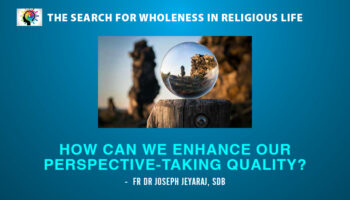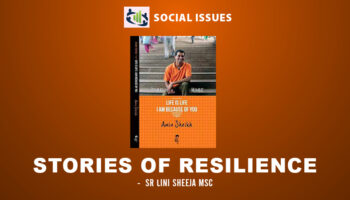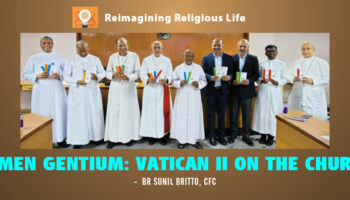Ignatius of Loyola in his Autobiography does not call himself a priest, master, leader, founder etc. Instead he calls himself a pilgrim. It is said that the word pilgrim appears seventy seven (77) times in the Autobiography of St Ignatius. He was a pilgrim because – he was in search of the Divine. He was on a pilgrimage from “ego” to Christ (or the Divine). In doing so he travelled from his mind to the heart. No doubt it was a long journey that he took up in order to reach from the self to the other. They say the longest distance in the world is – from one’s mind to one’s heart! His Autobiography is called Testament and Testimony. It is the Testament because it is the proclamation/expression of faith and it is the Testimony because it is the witness or proof of his faith journey. Now this pilgrim saint leaves behind a precious gift called Daily Examen of Consciousness for our spiritual growth. The pilgrim saint by offering this precious gift to us invites each one of us to be pilgrims in the world of today.
Certainly, it is in my prayer that God gradually reveals Himself to me and the mystery of His Plan for all of reality in Christ enabling me to know and love as the divine persons know and love. It is in prayer that I experience His invitation and challenges to me personally. “You are mine; I have called you by name.” Is.43:1. This is why the examen is prayer and is related to my daily, personal and contemplative prayer. My prayer would be empty if I did not order my life or remove the obstacles or impediments to respond to Him. It is the daily examen that helps me to feel and recognize those interior invitations/movements of the Lord that guide and deepen this ordering/relationship. To be prayerful means to find God in all things not just in the time of formal prayer – even after the formal prayer.
Fr Richard Mascarenhas SJ
To read the entire article, click Subscribe





